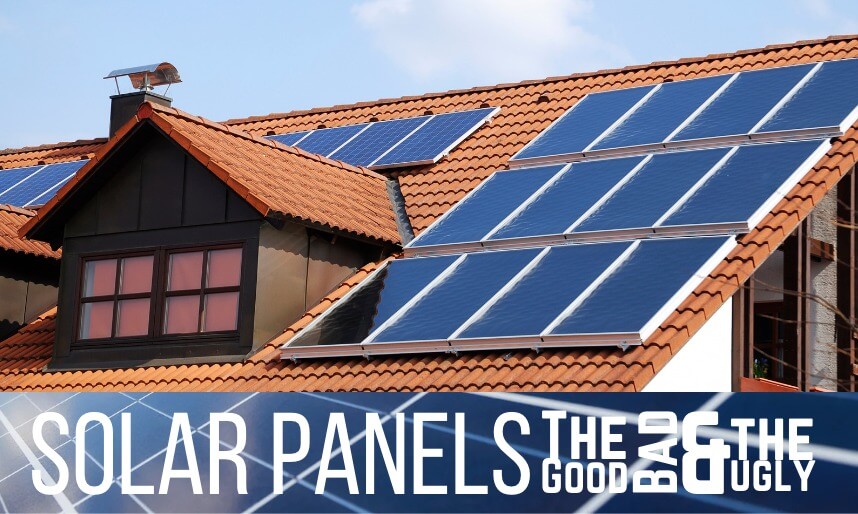About
Membership
News & Events

Solar Panel The Good, Bad & the Ugly
BER Magazine Fall 2023
Installing Solar Panels
For now, there are a lot of barriers to entry when it comes to installing solar panels – One of the biggest right now might be the state of our local roofs after Hurricane Ian as solar only makes sense to be installed on a brand-new roof. A good installer wouldn’t dare to offer an install on a roof that needs to be replaced within 5 years and there is an additional cost once you do replace the roof and need to reinstall the panels.
Seeing as a roof can be anywhere in the 5-figure range and solar can also be in the 5-figure range, more than likely the average Florida homeowner is going to need to utilize a deep savings account or a loan on the property. The good news is that recently the federal tax rate for solar panels has gone up to 30% over 10 years with the inflation reduction act, financing is still low at a potential “1.49% financing for 25 years” and with the unfortunate rise in utility costs, the idea that you may start saving on energy costs with solar power might become a reality, because up until now, you were more than likely to lose money or break even when financing the panels.
The Insurance Dilema
You may now be thinking that all this doesn’t sound too bad and if that is the boat you are in, great! Now let me add a few more things you may need to consider. Insurance is becoming more and more of an issue in our state – there is no secret that the costs to insure your home has doubled and maybe even tripled in the last few years and it seems like this won’t be an issue that goes away anytime soon. With that, the ability to insure your roof with solar panels is becoming harder and harder to find for a few reasons:
- If you don’t have a new roof or one that needs to be replaced in a few years, insurers won’t cover it. Unless you can prove that the roof has multiple years of life in it.
- Net Metering – This is where surplus energy is sent back along the public utility grid and allows the customer to “sell back” power to the power company. This is causing a lot of issues by posing risks to line workers and damaging the utility grid.
- Many insurers are claiming that solar panels make roofs more susceptible to wind damage as the panels themselves might lift the roof more than the normal structure itself. So clearly, the thought of another natural disaster is making solar harder for some insurers to consider. Especially with one in recent memory.
The Good
On average, the cost for solar panels in Florida is $2.58 per watt as of August 2022. A typical system is around 5-6 kW total so the price for installation of the average unit is between $11,000-$15,000.
Add on the 30% solar tax credit and your bill could be a lot lower.
Although mileage may vary, it is estimated that the cost of the solar panels is recouped within anywhere from 5-15 years depending on your circumstances. After that time period, your electricity is completely paid for and you may even have the ability to sell back excess power via Net Metering (so long as it is insurable).
Solar has also dropped significantly and is poised to keep dropping as technology advances. It is estimated that the cost has dropped nearly 60-70 percent within the last decade. If you are looking to make your current residence your 'forever home' this might be a great investment for your property and you can even utilize the benefits of the PACE program. Just be aware of what you are signing up for when looking into the program.
The last 'good' worth mentioning is that technology is always advancing. You never know what is looming on the horizon that will make your investment even more desirable. Whether it's batteries or add-on cells.
The Bad & The Ugly
The average cost mentioned in the 'good' section is for the very average home. When you start scaling up your needs it can certainly be pricier and there are potential hidden costs around every corner. If insurers do decide to halt coverage of roofs with solar panels or you aren't able to qualify, you will not be able to get the loan you need to invest into solar and furthermore, you run the risk of being uninsurable on renewal. Of course, at the time of publishing, this is still partially hypothetical.
We will see where some of the insurance issues go within the coming years.
The PACE program is a tricky tool that makes the sale of your property rather tricky with its status of being a "super lien". If you don't pay this loan, you may end up houseless and that transfer between owners is very undesirable. A lot of times you will need to pay off this loan before you close on the transaction.
Technology is always advancing in this field, meaning you may in a few years be using a Walkman instead of an iPod in terms of comparison. If in a few years solar panels can capture and utilize more rays on the color spectrum it may mean that these panels become increasingly more efficient in terms of cost and output. Understand that you may be stuck with "yesterday's" technology and that could be costing you more money in the long run.
